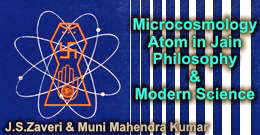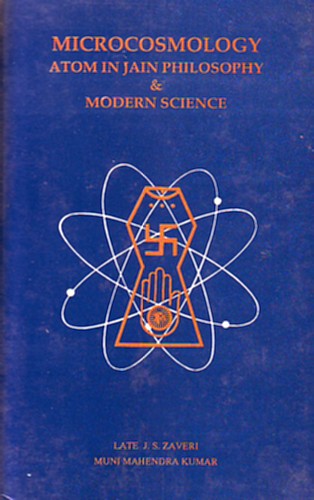
The following are the six universal qualities (samanya guna) i.e. they are possessed by all the six substances:
| 1 | (Eternal) Existence | Astitva |
| 2 | Causal Efficiency | Vastutva |
| 3 | Substancehood | Dravyatva |
| 4 | Objectivity | Prameyatva |
| 5 | Extension-in-space | Pradesavatva |
| 6 | (Eternal) Persistence/Permanence | Agurulaghutva |
1. (Eternal) Existence (Astitva)
Eternal existence means continuous duration by reason of which each substance maintains its 'BEING' and is never confronted by extinction. It is by virtue of this quality that a substance is neither created nor destroyed, but maintains its identity eternally.
While emphasizing the plurality of the six substances, it is also emphasized by the Jains that plurality is not an unrelated chaos but a system, inasmuch as each substance is cemented with the rest by definite bonds of relationship.
The Non-absolutism of Jains is not the result of negation of absolute and extremes but their unification and integration as a system. Absolutism consists in maintaining either unity or multiplicity as absolute truth and holding that one is in absolute opposition to the other, e.g. Vedantists hold the unity (of Reality) as the whole truth, whereas the Buddhist nihilists accept multiplicity as the only truth, but the non-absolutist Jains accept both unity and multiplicity as the true determinations of the Reality.
| [1] Pancastikaya-Samgraha, with Tattvapradipika, p. 8 |
Thus, while propounding the division of Universal Reality into six substances each with its own particular characteristics, the Jains also emphasize their unity by propounding certain universal attributes possessed by all of them. The universal attribute "Existence" may be regarded as the highest universal, and is proclaimed by the Jains to be Mahasatta i.e. essence of Reality [1].
This means that in spite of their multiplicity, the six substances comprise one universal system. This aspect of unity (viz. Mahasatta) is emphasized not only in the individual substance's constitution as an individualistic trait (i.e. Avantarasatta) but the unity of all Reals. Existence, however, should not be abstracted and postulated as the unitary substance of which the other substances may be taken as paryayas (modes). The six substances, in spite of their common characteristic of existence, are fundamental and irreducible one to another.
Thus, the metaphysical system propounded by Jain philosophers is not a hopeless chaos of pluralism but a pluralism integrated into a system.
 Jethalal S. Zaveri
Jethalal S. Zaveri
 Prof. Muni Mahendra Kumar
Prof. Muni Mahendra Kumar

